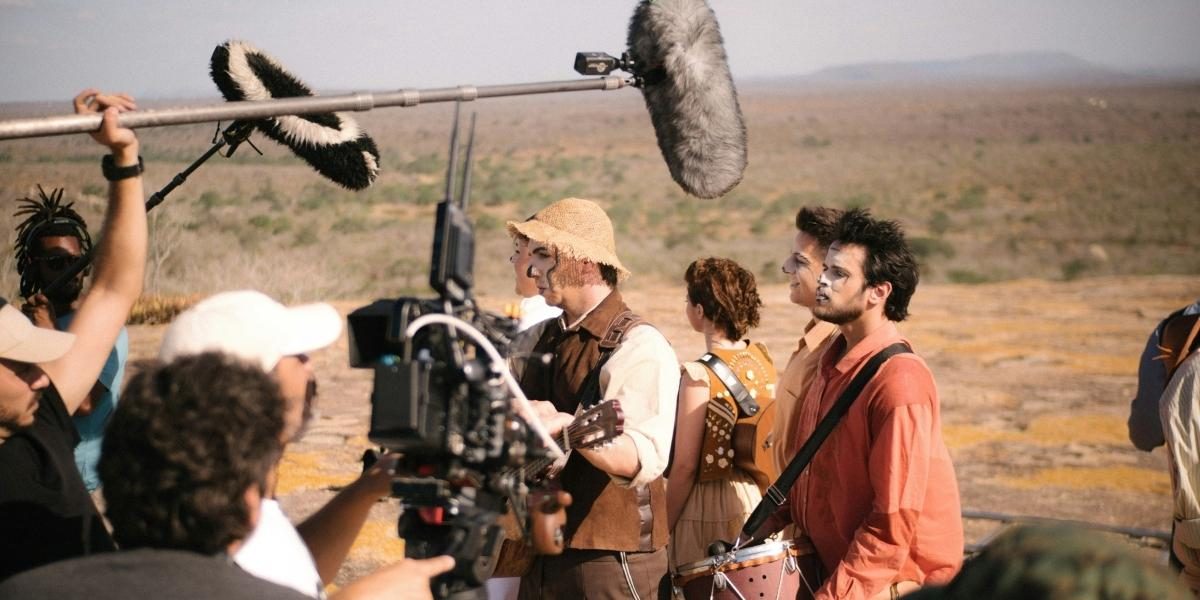In recent years, Hollywood has been inundated with reboots and remakes, bringing old stories and familiar characters to life for new audiences. While some fans celebrate the return of classic tales, others worry that this trend reflects a deeper problem within the entertainment industry: a potential decline in original creativity. So, is Hollywood’s obsession with reboots a nostalgic homage to beloved classics, or is it a sign that creativity is taking a back seat to profitability?
Read Also: How the FIFA World Cup Became a Global Phenomenon
Why Are Reboots and Remakes So Popular?
Reboots and remakes tap into something powerful: nostalgia. For many viewers, the movies and TV shows from their childhood hold a unique charm, and studios know this emotional connection can drive audiences back to theaters or streaming platforms. In an industry where a box office hit can mean billions, it’s no surprise that familiar names are resurrected. Titles like Jurassic Park, Ghostbusters, and Star Wars don’t just come with storylines; they come with fan loyalty, memories, and an existing fanbase. Studios find security in this familiarity, betting that fans of the originals will return, sometimes bringing a new generation to share in the experience.
New stories risk unpredictable reception, while well-known titles benefit from established brand recognition. It’s an attractive formula for studio executives: rather than taking a risk on new and unproven ideas, a remake of a beloved film or series has built-in appeal. However, this strategy prioritizes revenue over creativity, leaving many wondering if the industry’s current direction is sustainable or merely recycling ideas instead of fostering innovation.
Are Reboots Stifling Originality in Hollywood?
Critics argue that the dominance of reboots and remakes stifles original storytelling in Hollywood. Every year, original screenplays and fresh narratives struggle for recognition against a sea of familiar titles. This trend raises concerns about what new voices and stories may be missing out on attention and resources. Original films like Inception or Get Out demonstrate that audiences can embrace fresh ideas—when they can.
The reliance on reboots also begs the question: is Hollywood running out of ideas? Some would say no, pointing out the many talented screenwriters and directors striving to introduce new narratives. However, the sheer volume of remakes signals a different priority for studios. For every original idea that makes it to the big screen, a dozen more reboots are lined up for release. For instance, recent announcements about rebooting classics like Home Alone and The Fresh Prince of Bel-Air sparked debates over whether some stories are best left in the past.
Moreover, reboots can dilute the magic of original stories. What made the classics classic was often a unique mix of timing, culture, and innovation—elements that may not translate well in a modern remake. When a beloved movie or show is remade without capturing its original essence, it risks disappointing long-time fans and failing to connect with new ones.
Can Reboots Add Value, or Are They Just for Profit?
While some see reboots as mere cash grabs, there are cases where they genuinely enhance or expand upon the original material. A well-done reboot can introduce a classic story to a younger audience, with updates that make it more relevant to contemporary society. For instance, reboots like A Star Is Born or West Side Story have added new dimensions to the originals, reinterpreting classic narratives with fresh perspectives. These remakes can honor the source material while adding layers that resonate with today’s viewers.
Additionally, specific stories are ripe for re-imagining. Superhero movies, for example, have seen a series of successful reboots that bring characters to life in new ways while staying true to their origins. These adaptations reflect evolving cultural values and changing social landscapes, illustrating how remakes can sometimes be artistic reflections of their time.
Still, the line between creative reinterpretation and commercial exploitation is thin. When reboots prioritize profit over meaningful storytelling, the results often feel hollow and formulaic. In these cases, reboots may only remind audiences of the original’s superiority rather than contribute something new to the story. Fans can sense when a reboot is crafted with purpose versus when it’s churned out to fill a studio’s quota.
Are Reboots Here to Stay?
As long as reboots and remakes continue generating profits, they’re likely here to stay. The entertainment landscape has changed, with studios more cautious about taking risks and audiences more eager for content they can trust. However, this trend doesn’t mean creativity is entirely lost in Hollywood. Original ideas still find their way into theaters and streaming platforms, albeit with a steeper climb to success.
For viewers, reboots present both an opportunity and a challenge. They offer a chance to revisit beloved characters and stories, but they also raise the question of how many new tales we might miss out on as studios mine the past. As Hollywood seeks to balance nostalgia with innovation, the future of entertainment will depend on its ability to find fresh ways to captivate audiences without relying solely on what’s familiar.
Read Also: Sports Tradition: Why We Cherish Rituals in Games
Ultimately, Hollywood’s influx of reboots and remakes reflects the industry’s complex dance between creativity and commercial pressure. Audiences still crave unique stories, and as long as that demand exists, Hollywood will have to decide whether to lean on old favorites or to explore new worlds boldly. The entertainment industry has always been about striking a balance, and perhaps one day, reboots will soon pave the way for fresh narratives to take center stage again.








